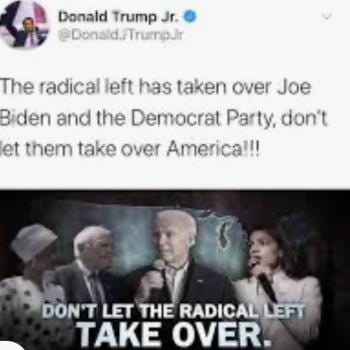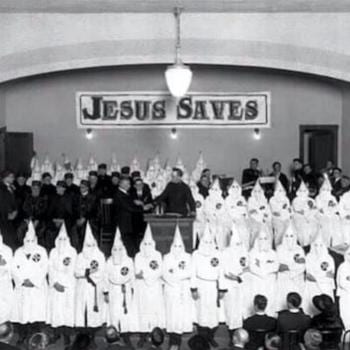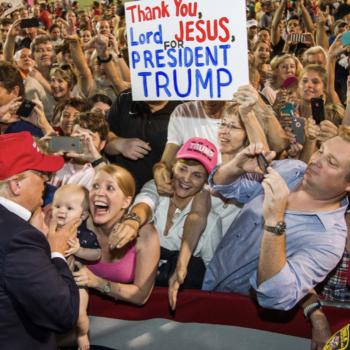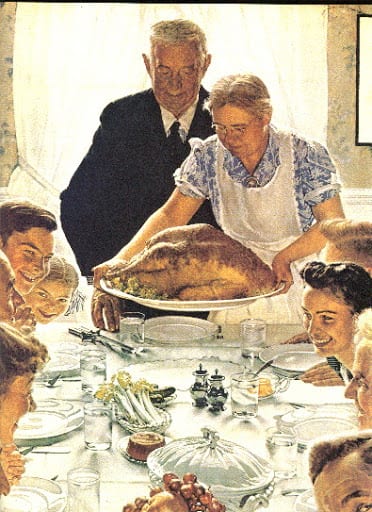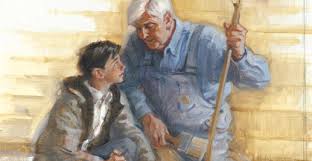
A topic I find interesting, especially in my position as a teacher of history, is just what it is that makes some people love history and some look at it as something to be dreaded. The easy answer, I suppose, is that some people are blessed with history teachers, early on, that made it interesting. While that may, indeed, be a major contributing factor, I suspect it goes a lot deeper in many cases. My theory is that a lot of people came to their love of history through family connections to it in one way or another. I certainly believe that to be the case for myself.
In my case, I owe a healthy portion of my interest in history to both my grandfathers.
My maternal grandfather was a lifelong Hoosier. He lived in the same town where I grew up, Alexandria. He was quite a character! His last name was McGinnis and most people knew him as “Ginny.” He was a bit of a legend around town due to his habit of driving VERY slowly. He had an old yellow Chevy pickup truck with a manual “three on the tree” transmission. If that vehicle ever topped 40 miles an hour, I wasn’t around to see it. In fact, when I was a pallbearer for his funeral, as we were riding in the limo to the cemetery, I looked around and said to my cousins and others who were there, “it seems only fitting and proper that, on grandpa’s last ride, he has a long line of traffic behind him.”
As a teen, I had an intimate relationship with that old yellow truck. My grandpa’s eyesight was pretty poor, and it got worse as he aged. Consequently, I became his eyes on a frequent basis when he needed to do something that his limited vision prohibited. One of my regular tasks involved helping him maintain that vehicle. Grandpa was nearly fanatical about keeping it “greased.” I would get a phone call on what seemed to be a monthly basis to come over and “help me grease the truck.” That involved taking a grease gun, crawling up under the truck, finding all the little grease fittings and pumping the handle in these extremely tight little spaces until it seemed like enough. I had absolutely no idea what I was doing and, truth be known, I probably wasted more grease than actually got through the fittings, but I was doing my due diligence to help grandpa. To this day, he is the only person I have ever known to actually do that to his vehicle…and he did it with astounding regularity. That had to be the greasiest machine in the Midwest!
But another job I had, being my grandpa’s eyes, was one of the things that helped spark my lifelong love affair with history. Grandpa Ginny did not possess a great deal of formal education, but he was a very smart man with a great wit. He also was a self-taught amateur historian. Grandpa was a library rat. He loved to travel and whenever he came into a new town, his first stop was, inevitably, the local library. He studied a lot about the Revolutionary and Civil Wars. One thing he especially focused his research on, for reasons I never really understood, was the burial locations of Revolutionary and Civil War veterans, especially Hoosiers. He kept detailed journals of this data as he researched. His hobby was researching these locations and then driving all around the state to locate these little, out of the way cemeteries to find the grave markers of the old soldiers. Remember, Grandpa Ginny had very poor eyesight and reading 150 year old gravestones requires one to be able to see quite well. Guess who got to be his eyes on these excursions?
This may not sound like an exciting hobby. I wouldn’t blame you for wondering just what in the world a teenage boy would stand to gain by being hauled around in a yellow pickup truck, traveling at approximately 29 miles an hour on average, through a seemingly endless maze of maize in the far-flung Hoosier countryside. But I am here to tell you that I gained a lot. First, I gained a good deal of knowledge about the state I call home. Some of these little cemeteries are in places you wouldn’t find by accident, overgrown and choked with brush, hidden down little dirt lanes in the middle of hundreds of acres of corn or soybeans…these are places where even the families of the dead have forgotten. Yet, my grandpa, for some reason, still cared enough to go and find them. He needed me to help, and I was glad to do it. I learned a lot about such places. For instance, I learned that if you want to find the oldest tombstones in and old cemetery, look for the biggest, oldest tree and start there…that is usually where the graveyard began. I learned a lot about the little old towns that we would pass through between the vast stretches of crop fields as we traversed from burial ground to burial ground. But, most of all, I learned that history is people, once just as alive as you and me, and they deserve to be remembered. I thank Grandpa Ginny for giving me that gift.
My paternal grandfather had no less an impact upon my love of history. Harry Phipps was southern Appalachian, through and through. He was a life-long resident of Hawkins County in upper-east Tennessee, an area steeped in history. Anyone who knows me well, knows that I have a good deal of the southern mountains flowing in my veins. It is why bluegrass music appeals to me, it awakens that part of my soul and takes me back to that place I loved so well in my childhood, my grandpa’s little mountain farm. Grandpa helped connect me to my East Tennessee roots by his love for passing along family history to me. Some of my most cherished childhood memories are spending time on his farm. I particularly loved it when he would take me on long drives down winding mountain roads over hills, through the beautiful valleys and, seemingly, around every new bend came a story from grandpa that connected my family to that place. I’ll never remember all the details of the stories, but the point that kept coming home to me again and again was “this is my place and these are my people…and it has been that way for a long, long time.” That has great value to me, even today.
I also learned some hard lessons on those drives with grandpa through the hills and hollers. I learned that my family’s history is not all bright, shiny stories of which to be proud. One place that we passed often stands as a memorial to the darker aspects of my (and many families with southern heritage) history. That place, which still stands today, is called the Rotherwood Mansion. In the first portion of the 19th Century, that grand old home belonged to my family. It was the centerpiece of one of the largest plantations in eastern Tennessee and home to many slaves…slaves owned by my own family. Grandpa would tell stories about the mean master of the plantation, Joshua (grandpa always pronounced it “Joshuway”) Phipps, the son of one of my great grandfathers, William. Joshua was notoriously evil. He was cruel to his slaves. Family lore has it that when he died, he requested to be buried on a hill, standing up and facing his fields so that, even in death, he could lord over his slaves. I’ll spare you all the details, but you can read much more about the Rotherwood Mansion and Joshua Phipps by clicking here. I struggled as a youngster to come to grips with the notion that such evil was also a part of my history…but it was a worthwhile thing to struggle with because, after all, when we take a good hard look at history, we learn quickly that it isn’t always pleasant. In fact, often, it is downright ugly. Learning about my own family’s intimate connection with history…the good, bad, and ugly, helped me from an early age have empathy for the characters I learned about in history classes and about whom I now teach. We simply must look at history from as many angles and perspectives as we can to get a full and honest picture of it. I learned that my family does not have clean hands but I also know that, if you dig deep enough, you will find plenty of skeletons in any family closet. We are fallible beings, every one of us.
So, there is my evidence to show that finding your family connection with history can be a huge first step toward finding your passion for history in general. A favorite quote of mine is from Norman Podhoretz who wrote in his autobiography, “I thought history was a series of past events….I did not know I was a product of a tradition, that past ages had been inhabited by men like myself, and the things they had done bore a direct relation to me and to the world in which I lived. When I learned history didn’t happen to other people, but happened to me…It set my brain on fire.”
That is what I want my students to experience. I want them to see that history is not about “other people” it is about US! I like to say history isn’t “HIS story” it is “OUR story.” I want my students to find their own connections. I want to set their “brains on fire.”


